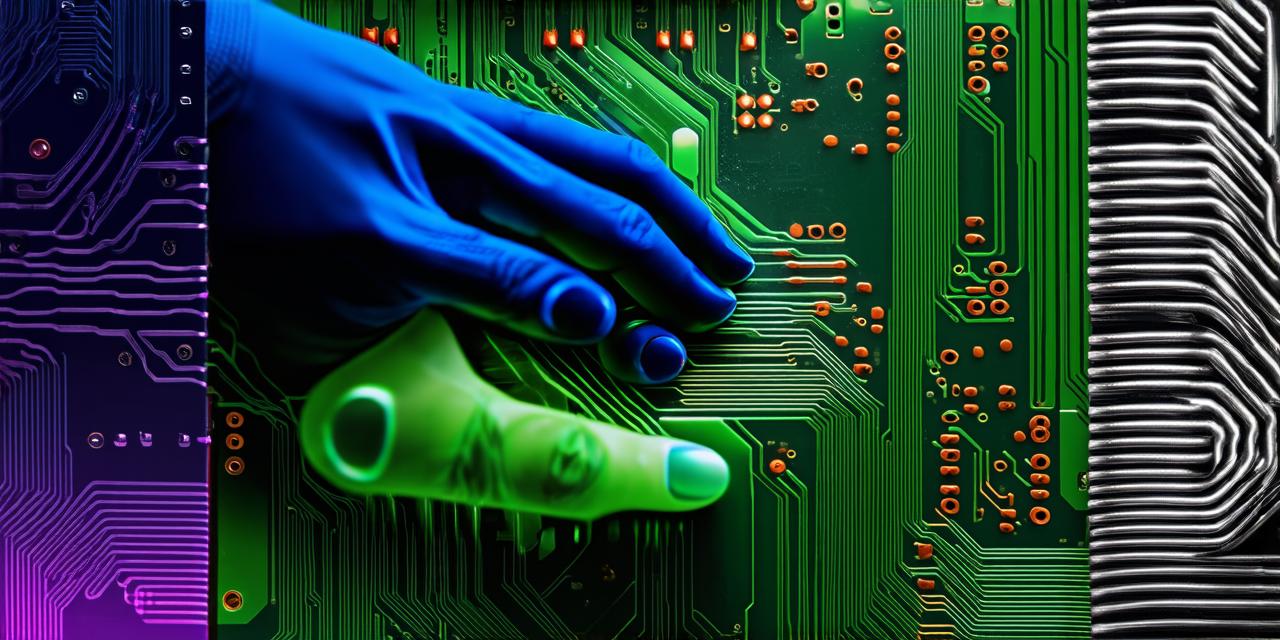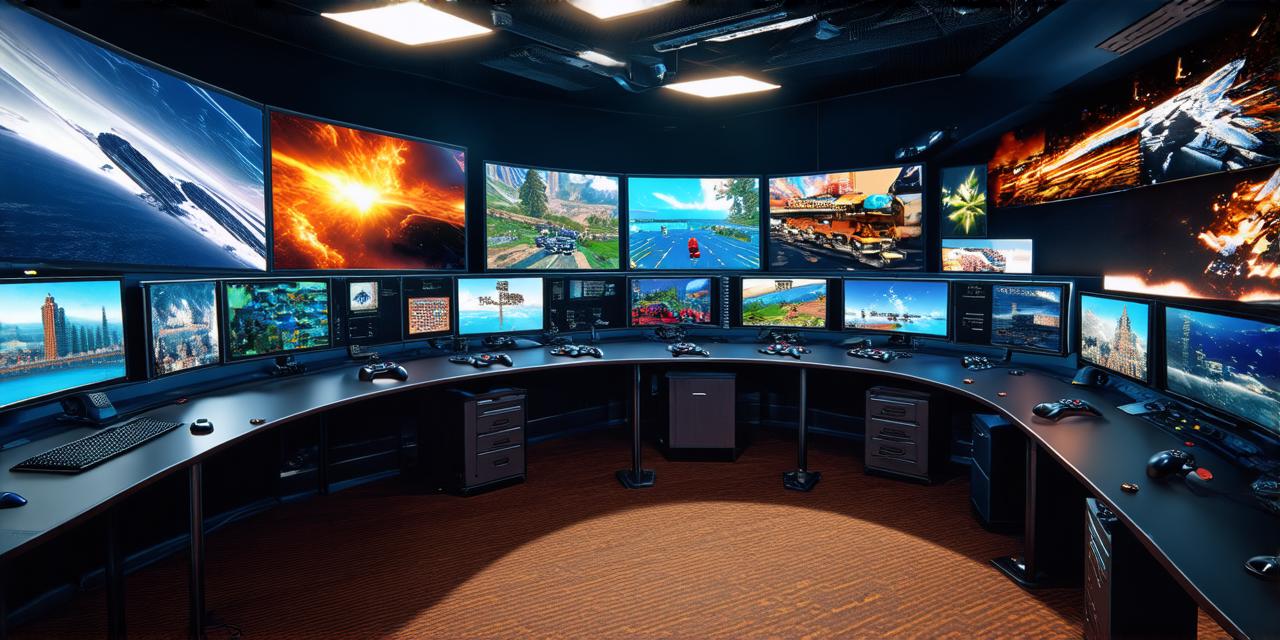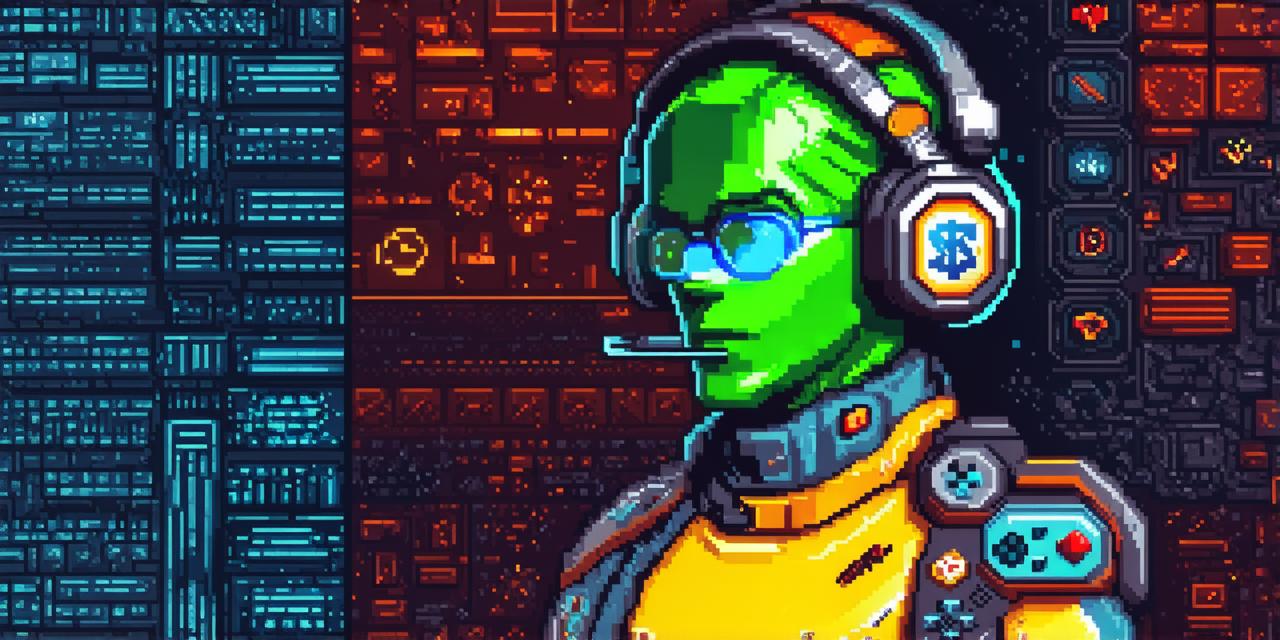1. Choose the Right Tools
The first step in game development is to choose the right tools. There are many tools available for game development, including game engines, programming languages, and software development kits (SDKs). Some popular game engines include Unity, Unreal Engine, and Godot. These engines provide a set of tools that simplify the game development process.
When choosing a tool, it’s important to consider your level of experience and the type of game you want to create. For example, if you are new to game development, you may want to start with a beginner-friendly tool like Stencyl or Scratch. These tools use drag-and-drop interfaces, making them easy to learn and use.
2. Learn the Fundamentals of Game Development
Before you can create a successful game, you need to understand the fundamentals of game development. This includes understanding programming languages, data structures, algorithms, and game design principles. Some key concepts to master include:
- Object-oriented programming (OOP)
- Event-driven programming
- Game loop
- Collision detection and response
- User interface (UI) design
- Level design
- Game balance and difficulty adjustment

3. Experiment and Iterate
Game development is an iterative process. You will likely go through multiple rounds of experimentation before arriving at a final product. It’s important to be open-minded and willing to make changes based on feedback from users and stakeholders.
One way to accelerate the iteration process is to use prototyping tools. These tools allow you to quickly create and test game concepts without having to write a lot of code. For example, Unity has built-in prototype features that can help you rapidly iterate on game ideas.
4. Collaborate with Other Developers
Game development is a team sport. You will likely need to work with other developers, artists, and designers to create a successful game. Some benefits of collaboration include:
- Fresh perspectives and ideas
- Division of labor
- Accountability and motivation
When collaborating with others, it’s important to establish clear communication channels and roles and responsibilities. This can help prevent misunderstandings and ensure that everyone is working towards the same goal.
5. Learn from Other Game Developers
There are many resources available for game developers, including tutorials, books, and online communities. Some popular resources include:
- Udemy: A platform for online courses on game development and related topics.
- Stack Overflow: A community of programmers who can help you with technical questions and problems.
- Reddit: A social news aggregation site with subreddits dedicated to game development and programming.
- GameDev.net: A website that provides news, tutorials, and job listings for game developers.
By learning from other game developers, you can gain insights into best practices and discover new techniques for game development.
6. Stay Up-to-Date with Industry Trends
The game development industry is constantly evolving, with new technologies and trends emerging all the time. To stay competitive, it’s important to stay up-to-date with these changes. Some key trends to watch include:
- Virtual reality (VR) and augmented reality (AR)
- Artificial intelligence (AI) and machine learning (ML)
- Cloud gaming and serverless architecture
- Cross-platform development and mobile game development
FAQs
1. What skills do I need to become a game developer?
Technical skills: programming languages, data structures, algorithms; Creativity and problem-solving skills; Teamwork and collaboration skills.
2. How long does it take to create a game?
The time it takes to create a game depends on the complexity of the project and the size of the team. Some games can be created in a few months, while others can take years.
3. What tools do I need to create a game?
Game engines: Unity, Unreal Engine, Godot; Programming languages: C++, Java, Python, etc.; Software development kits (SDKs)
4. How do I start in game development?
Choose a beginner-friendly tool like Stencyl or Scratch; Learn the fundamentals of game development; Experiment and iterate on game ideas.
5. Can I make money from game development?
Yes, game development can be a lucrative career, with opportunities for freelance work, contract work, and full-time employment.



